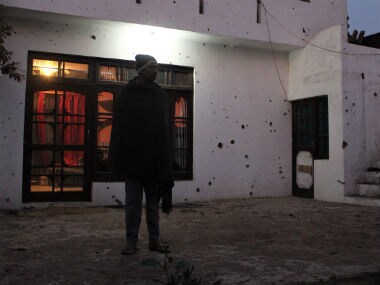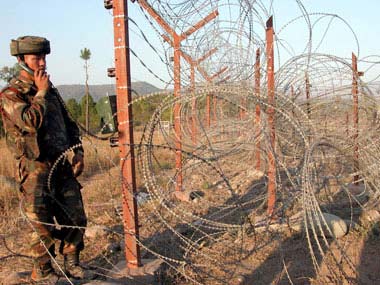Chakrohi, Jammu: Mohammad Rafiq is sitting on a wooden cart piled with garments seemingly packed in hurry, some blankets and some odd household items. Next to the cart parked along a roadside pavement in Chakrohi, Rafiq’s mother caresses his younger sister who looks visibly upset. The family is almost seven kilometers from their home in RS Pura sub-division of Jammu, where the India Army and its Pakistani counterpart continue to exchange heavy fire.
Rafiq, a Class VI student has not been to school for a week since guns started blazing across the border that divides India and Pakistan. He doesn’t want to go back. He is likely to spend the coming weeks here on this roadside pavement in Chakrohi as intermittent shelling and firing continues in his village during the night and villagers sleep under open sky near a government-run school which has been turned into a shelter home for population in thousands who are fleeing their homes due to fresh escalation. A mortar shell landed at the gate of his house when Rafiq was playing with friends in the school ground.
"Firing went on for a long time and we could only run for our lives," Rafiq said. The family was waiting few meters from the Government Higher Secondary School in Chakrohi which is one of the 500 schools along the Line of Control and the International Border under the radius of three kilometers that were shut by the Jammu and Kashmir government last week as firing intensified. More than 6,000 children have been unable to go to school, according to officials, and most of them are staying either with their relatives or in a shelter camp.
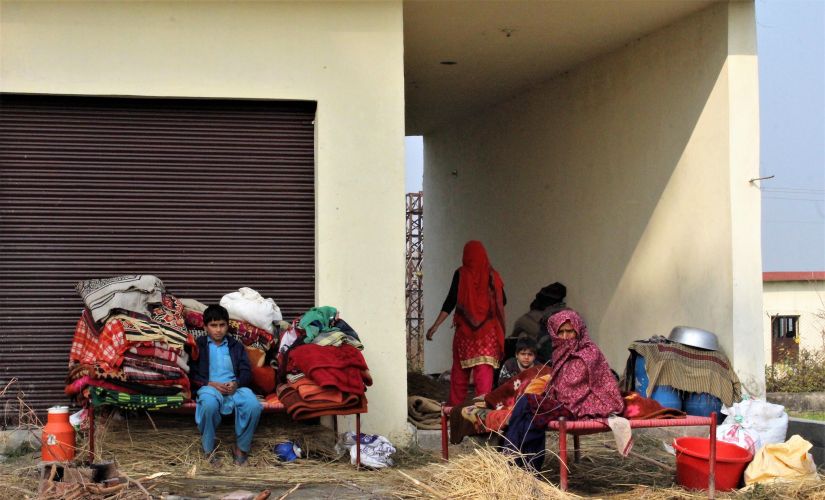
Class VI student Mohammad Rafiq is sitting on the cart parked along a roadside pavement in Chakrohi. Image by Sameer Yasir
"I will never forget the deafening sound when the shell exploded outside our school. All of us started crying but there was nowhere to go. Teachers escorted us out through backdoor. But it seemed as if the bullets and mortars were coming from all sides," Rafiq said in Chakroi.
On Monday, Firstpost visited Rafiq's school in Jora Farm. The streets were deserted. No sign of human life. The sound of two horse-driven carts was the only sign of life in the village where house have turned into ashes. The school building was destroyed too.
"Children in other places want the schools to be closed so they can stay at home, but here we wish them to remain open so that we can go, play with our friends and have fun. Besides, we will fall back on covering the syllabus," Rafiq said.
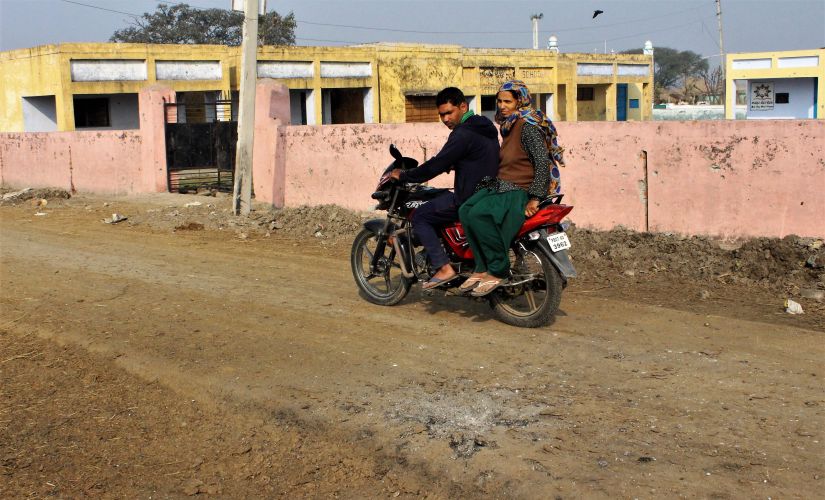
The school in Jora were mortar shells landed outside its gate a few days ago. Image by Sameer Yasir
Whenever the skirmishes along the International Border and the Line of Control worsenes, education is the first casualty. As guns roar along the border, panic and fear-struck villagers first take their children to safer places. It is a tragic story which often repeats itself and everytime hurls thousands of people across hundreds of villages into strange territories.
Parents worried about the academic calendar of their children spend most of the year moving between their homes and shelter camps. The endless violence surely impacts the emotions of younger ones and hampers their academic growth. During this time of rage, they have literally nothing to do, except wait, loiter and kill time.
Last week's renewed violence has left close to eleven people dead, which is close to the total number of people who died in 2017 in cross-border firing. Higher-range mortars are being used for the first time in three years by Pakistani side, prompting the authorities to relocate more than 20,000 people, from villages located within a 3-kilometre distance of the international border, to safer areas.
In Poonch, which is one of the worst hit districts in the state, of the total 65, 32 schools are located within zero to 2-km of border on Balakote, Mendhar and Mankote areas while 33 other schools are situated within the shelling range of Pakistani forces in Jallas, Degwar, Shahpur, Saujian and other areas of Poonch-Haveli and Mandi.
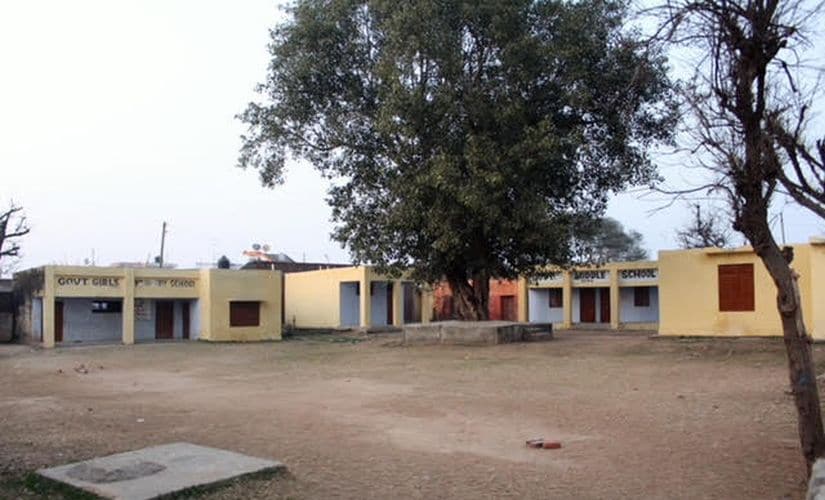
The empty campus of a school in the Bera district along the International Border. Image by Sameer Yasir
"Our children remain educationally backward because of the continuous firing from last several years from Pakistani side. They have seen nothing except migration and bombing of their schools and homes. Like the children of Kashmir who get grace marks in exams because of unrest, the government should make a similar arrangement for our children too because they are not able to concentrate on their studies," Yashpal Saini, a social activist in Arnia, said.
"Close to 400 schools have shut which fall within five kilometer radius in Jammu region. There are more than 50,000 children studying in these schools. But for us, the priority this time is to save their lives as the firing continues. We are thinking of imparting education through some interim arrangements for the moment," Ravinder Singh, director education, Jammu division told Firstpost.
Kanta Saini's son was in his study on Saturday. Lights were dimmed to avoid detection. Suddenly, a mortar shell landed on the roof. It bore through the wall roof and exploded, making a gaping hole in the wall. His children fainted on hearing the explosion. The family has now left the place for good and they won't be coming back anytime soon. "I don't want to go home until we can live in peace," said Saini's son, Shrawn Saini. He is still wearing his school uniform and has not changed it since last week when the family fled from their home. He is one of the few dozens of children who should be at school but are instead forced to hide.
"These children have nothing to do now. Most of them remain in the camp along with people from their areas and help their families. This is not the kind of environment a father will expect his children to grow in. But we don’t have any choice, except to hope for best," the elder Saini said.
Published Date: Jan 24, 2018 14:42 PM | Updated Date: Jan 24, 2018 14:42 PM






